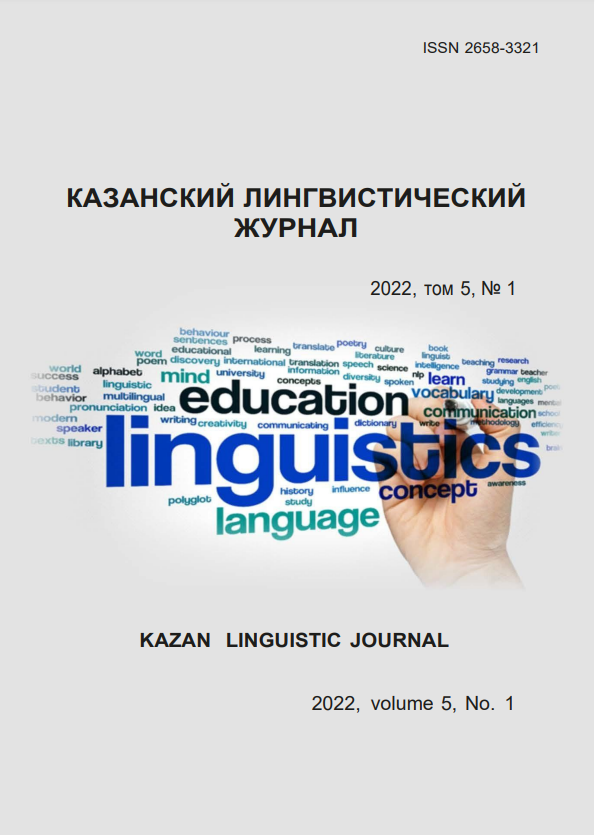The concept of “politeness” in the political discourse and the strategies of communicative politeness
https://doi.org/10.26907/2658-3321.2022.5.1.46-54
Keywords:
concept, politeness, political discourse, linguistic culture, conceptual picture of the worldAbstract
This article is devoted to the study of the regulatory concept of “politeness”, implemented in the political English-and Russian-language discourse. In addition, the concept of “politeness” is also understood in a broader sense from a philosophical point of view, as well as everyday reality. The implemented concept is considered not only as a category of speech etiquette but also as a component of the national concept sphere, a separate communicative category that expresses itself through different linguistic and extra-linguistic means in each language. The description of this communicative category goes beyond the understanding of “politeness” as a cultural phenomenon since, in the current study, the concept of “politeness” in political discourse allows us to trace the formation of certain behavior and way of expressing the thoughts of native speakers of a certain language. The concept, in this case, is verbal and can be traced more clearly in the process of communication (using the associative potential). In this case, the study of the category of “politeness” cannot be overestimated, since its study through the prism of cognitive linguistics makes it possible to represent reality and a realizable picture of the world, and its consideration in political discourse studies the ways of direct influence on the audience.
References
Pocheptsov G.G. Communication theory. M.: Refl-buk, K.: Vakler; 2001. (In Russ.)
Karasik V. I. Evaluative dominants in the linguistic picture of the world. Unity of systems and functional analysis of language units. Belgorod; 1999. (In Russ.)
Askoldov S.A. Concept and word. Russian literature. From the theory of literature to the structure of the text. M.: Academia; 1997. p.267-279 (In Russ.)
Karasik V. I. Cultural dominants in the language. Linguistic personality: cultural concepts: collection of scientific papers. Volgograd; Arkhangel'sk: Peremena; 1996. p.3-16. (In Russ.)
Pimenova M.V. Conceptualization of feeling in the Russian language map of the world. The world of man and the world of language. Kemerovo: Kompleks Grafika»; 2003. p.58-120. (In Russ.)
Goffman E. The Presentation of Self in Everyday Life [Text]. Social Sciences Research Centre; 1959.
Lyapin S.H. Conceptology: towards the formation of an approach. Concepts. Vypusk 1. Arkhangel’sk; 1997. (In Russ.)
Altunin A.A. The functional aspect of the concept of “politeness” in English linguoculture. Vestnik Adygeyskogo gosudarstvennogo universiteta. Ser. Filologiya i iskusstvovedenie; 2009. p.81-85. (In Russ.)
Bogdanova A.G. Objectification of conceptual signs of importance in the Russian-speaking picture of the world. Novoye v slavyanskoy filologii; otv.red Pimenova M.V. Sevastopol’; 2009. p.295-311. (In Russ.)
Goffman E. Interaction Ritual: Essays in Face-to-face Behavior. Aldine Publishing Company; 1967. p.19-40.
Brown R., Levinson S. Politeness: Some Universals in Language Usage. Cambridge [Text]. p.312-318.






